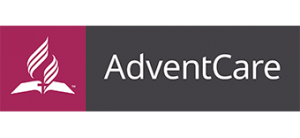Fees and Charges Explained
The fees you may be asked to pay are:
Basic Daily Fee+ | This is the minimum fee every resident is asked to pay, and it covers living costs such as meals, power and laundry. It is indexed at 85% of a standard aged pension. Pensioners continue to receive their fortnightly pension into their nominated bank account. Statements for payment of fees, usually by direct debit, are issued monthly. |
Supported (Low Means) Residents+ | If your assets are under the amount advised by the Government web site and income is less than the advised amount on the Government Web site you may, with approval, obtain funding from the Department of Social Services to cover the cost of your care. If you are a supported resident, you may be asked to contribute to the cost of care via Daily Accommodation (DAC) or Refundable Accommodation Contribution (RAC) or a combination of both if your assets are between the amounts advised on the Web site and your income is greater than the amount advised on the Government Web site, you will be required to submit a Centrelink Income and Asset Assessment. Centrelink will then advise you of your payment obligations in 14 days. |
Refundable Accommodation Deposit (RAD)Does not apply to Respite | If you have assets greater than the amount advised on the Government Web site you may be asked to contribute to the cost of your care via the payment of a Refundable Accommodation Deposit (RAD), which is a lump sum contribution to the cost of your accommodation. Government legislation states that on payment of a Refundable Accommodation Deposit. The Refundable Accommodation Deposit is refunded to you on your departure from the facility subject to any outstanding deductions such as the Daily Accommodation Payment, Non-Clinical Care Contribution or any other costs which may be payable. If you transfer to another Aged Care Facility, we will refund your Residential Accommodation Deposit within 14 days from when you provide notice. From 1 November 2025, providers will be required to keep a small portion of each new RAD, with the amount of retention capped at 5 years to protect residents who remain in care for a long time. The amount retained will be calculated based on a retention rate of 2% per annum of the RAD balance, with the amount debited monthly. This change would also apply to Refundable Accommodation Contributions (RACs) which are used by residents that receive support for some but not all of their accommodation deposits. Residents who have passed away will have their Residential Accommodation Deposit refunded within 14 days of Probate being provided. The Refundable Accommodation Deposit is guaranteed under the Aged Care Act, 2024 (Commonwealth). |
Higher Everyday Living Fees | The Higher Everyday Living Fee (HELF) is a fee for residents to receive a higher standard of everyday living services in respite or permanent residential aged care: HELF fees at AdventCare are provided as a bundle of services called the Advantage club. We will provide you with a brochure outlining these services. |
Non-Clinical Care ContributionDoes not apply to Respite | The amount you pay will depend on your income and assets; however, there are limits in place.There is a lifetime cap that apply to the means-tested care fee. Once these caps are reached you cannot be asked to pay any more means-tested care fees. |
Hotelling ContributionDoes not apply to Respite | People who can afford to will contribute more towards their daily living costs through a hotelling contribution. Services Australia will tell you if you need to pay a hotelling contribution and if so, how much you need to pay. This is based on your means assessment. The maximum amount changes with indexation in March and September. |
The Australian Government pays for the bulk of aged care services in Australia through subsidies paid to aged care providers. The amount that consumers pay in fees will vary, and is subject to means testing of income and assets through the Department of Human Services. Consumers may be asked to contribute to costs if they are financially able to do so. Help is available if people cannot afford to pay for care and accommodation costs.
There is a lifetime caps that apply to the Non-Clinical Care Contribution fee for aged care.
The maximum Non-Clinical Care Contribution you may be asked to pay in your lifetime is advised by the Department. This cap is indexed. When you have reached this lifetime cap, you cannot be asked to pay any more Non-Clinical Care Contribution. You may still be asked by your service provider to pay the basic daily fee and your agreed accommodation costs
Any income-tested care fee paid in a Home Care Package will also count towards your lifetime caps. The Federal Government will pay your Non-Clinical Care Contribution for you after you have reached this cap. The Federal Government will notify you and your service provider once you have reached the lifetime cap.
My Aged Care Website
The My Aged Care website at www.myagedcare.gov.au provides information about aged care and aged care services. It includes information about fee arrangements for aged care.
If you prefer to speak with someone about residential care services and fee arrangements or receive an estimate of fees you may be required to pay, telephone 1800 200 422.
Fact Sheets
Fact sheets about aged care can be downloaded from the Department of Health website and the My Aged Care website.
These provide an overview of the fee arrangements, as well as some simples examples.

